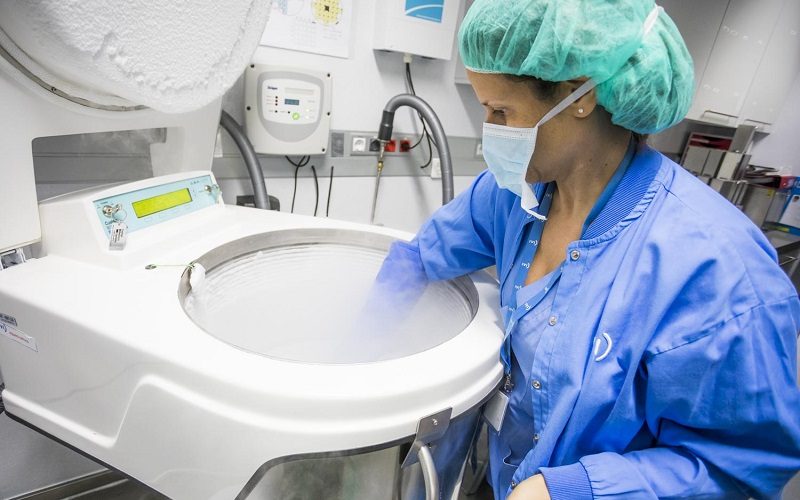
- Surgery in patients with endometriosis causes significant damage to the ovarian reserve of these women
- The reduced oocyte survival, decreased implantation and reproductive potential observed in young patients with endometriosis compared to those without the disease confirm the negative impact of endometriosis on the ovarian reserve and oocyte quality
VALENCIA, 8 JULY 2020
Endometriosis is a disease that can seriously compromise ovarian function and can therefore pose a threat to the fertility of women who suffer from it. In fact, approximately 50% of patients with endometriosis will experience infertility; therefore, preserving fertility in this population should definitely be considered.
“Last April we presented a study showing the suitability oocyte vitrification in patients with endometriosis to preserve their fertility. In cases where ovarian surgery was required, the highest success rates were observed when the oocytes were vitrified prior to surgery, especially in patients under 35 years of age. As several scientific publications show, this is due to the fact that, even in very expert hands, cystectomy can cause a decrease of up to 40% in serum AMH levels, reflecting a significant impairment of the ovarian reserve as a result of the endometriosis removal surgery, or because in addition to removing the cyst, healthy tissue may also be removed inadvertently. However, it is not known whether the survival of the oocytes and the clinical outcomes would be negatively affected in patients with endometriosis who preserved their fertility compared to women without endometriosis who vitrified their oocytes for social reasons?”, asked Dr Ana Cobo, Director of IVI Valencia‘s Cryobiology Unit.
This was the starting point for the study entitled Oocyte survival and clinical outcome is impaired in young endometriosis patients after fertility preservation (FP), led by Dr. Cobo, and which is presented at the 36th edition of the European Society of Human Reproduction and Embryology (ESHRE) Congress.
“The results of this study showed similar success rates in patients over 35 years of age, but in the under 35 group we observed that all parameters analysed worse off in women with endometriosis. One might think that this finding is due to the fact that patients with endometriosis may have fewer eggs, and yes, this is one of the reasons, but not the only one. The truth is that the implantation rate, which does not depend on the number of oocytes, is about 15 points lower (39% in endometriosis vs. 55% in preservation for social reasons), which may be related to oocyte quality. The oocyte survival rate (85% in endometriosis vs. 91% in social preservation) reinforces this thesis”, added Dr. Cobo.
In this sense, the results of survival, implantation and the lower reproductive potential observed in young patients with endometriosis confirm the negative impact of the disease on the ovarian reserve and most probably on the quality of the oocytes. To this we add the morphokinetic alterations observed by other authors in the embryos of patients with endometriosis, suggesting a poorer quality embryo.
This is a retrospective work that included 485 women with endometriosis who preserved their fertility, a sample from the study previously presented, compared to the 641 women who preserved for social reasons -without endometriosis-, a sample from the study that Dr. Cobo published in 2018. All of them used their vitrified oocytes subsequently to achieve pregnancy.
“Despite the high incidence of endometriosis and the growing number of women suffering from this disease who have vitrified oocytes to safeguard their fertility, very little is known about the effectiveness of the strategy in these cases. This study helps us clarify some of the main questions regarding the impact of endometriosis on reproductive outcomes. The study findings will also help us in advising these patients regarding their prospect of becoming mothers with their own eggs. They should preserve their fertility at an early age to increase their chances of pregnancy. Knowing that not only surgery can be harmful to the ovarian reserve, but also that endometriosis can alter the quality of the eggs, negatively affecting the rate of gestation, the sooner they are preserved, the greater the chance of success”, concluded Dr. Cobo.
